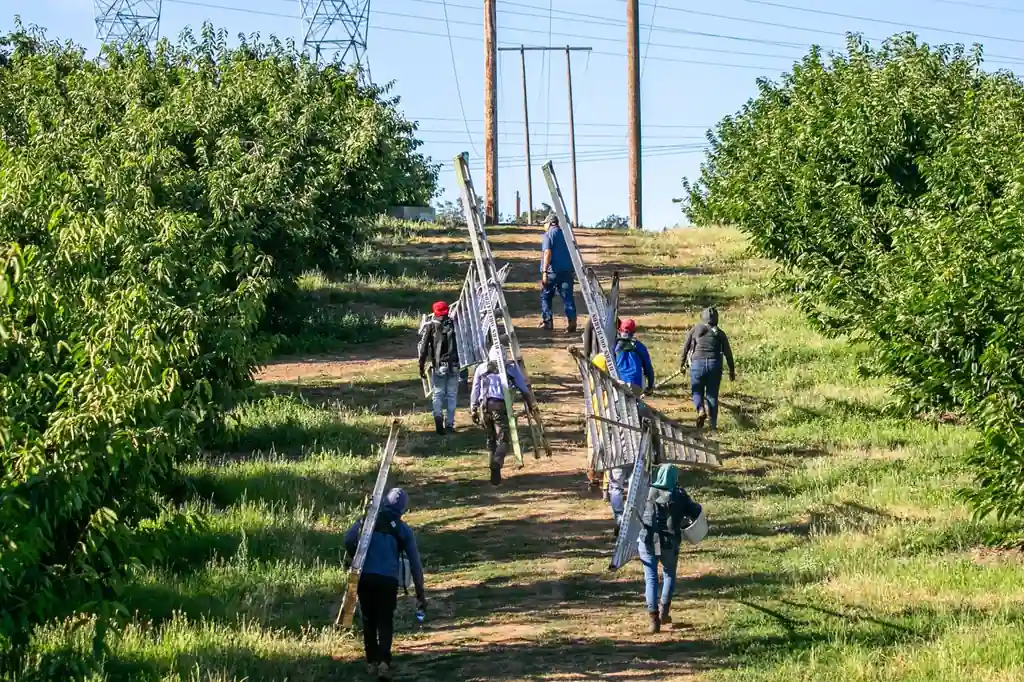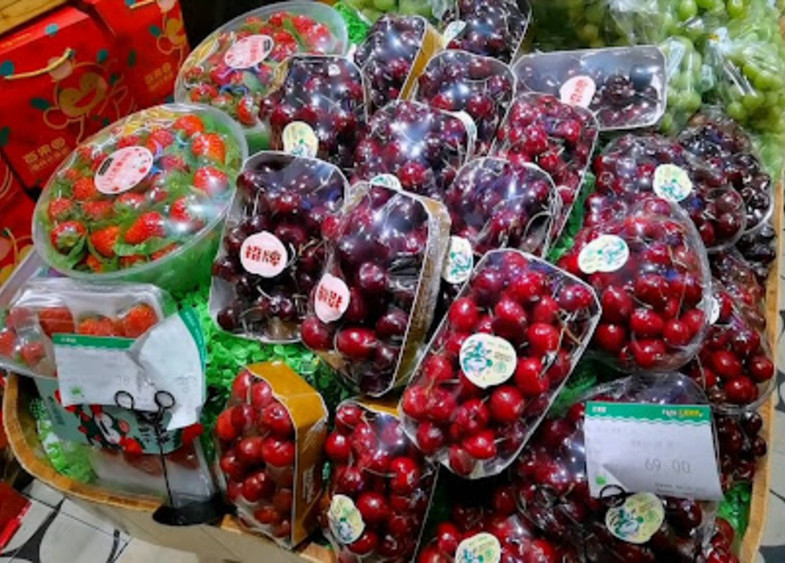In the United States, orchards are emptying of workers and cherries are rotting on the trees. The Trump administration’s immigration crackdown has triggered an agricultural paradox: fewer workers in the fields, lower yields, and continuously rising food prices. A downward spiral affecting both consumers and producers.

One Million Workers Lost
According to an analysis by Economic Insights and Research Consulting, since early 2025, around 1.2 million migrants have left the U.S. labor force. The most significant decline has occurred in agriculture: between March and July, employment in the sector fell by 6.5%, wiping out two years of growth.
The labor shortage has direct consequences on prices: fruit and vegetables have increased by more than 8% annually, while meat is up by 7%. “Mass deportations destabilize the economy and cause food prices to soar,” warns Vanessa Cárdenas, executive director of America’s Voice.
The H-2A Program: Solution or Illusion?
In response to the crisis, use of the H-2A temporary visa program is increasing. It is designed to authorize foreign workers to work on farms. However, its implementation is far from simple: complex bureaucracy and high costs make it inaccessible for small producers.
To this must be added a hard truth: 42% of the agricultural workforce consists of undocumented migrants. For them, fear of deportation limits the ability to claim rights or report exploitative conditions.
The Contradictions of the System
Many farmers admit that without migrant labor, harvests are at risk. Yet some, like Florida rancher Ryan Roth, still support the former president’s hardline stance, believing that stricter controls make it easier to hire “good workers.”
But the reality described by unions and agricultural associations tells a different story: absenteeism up to 60% in the fields, grueling shifts for those who remain, and entire supply chains slowing down. Even Trump himself had to admit that “by removing experienced workers, we’re destroying farmers,” suggesting the possibility of a “temporary permit” for some migrants.
As the White House struggles to reconcile political rhetoric with economic needs, the U.S. agri-food sector faces deep uncertainty. Without a structural solution, cherries, vegetables, and meat risk becoming increasingly expensive for consumers, while producers are caught between empty fields and unfulfilled promises.
Source: masp-lmneuquen-com
Image source: OPB
Cherry Times - All rights reserved











